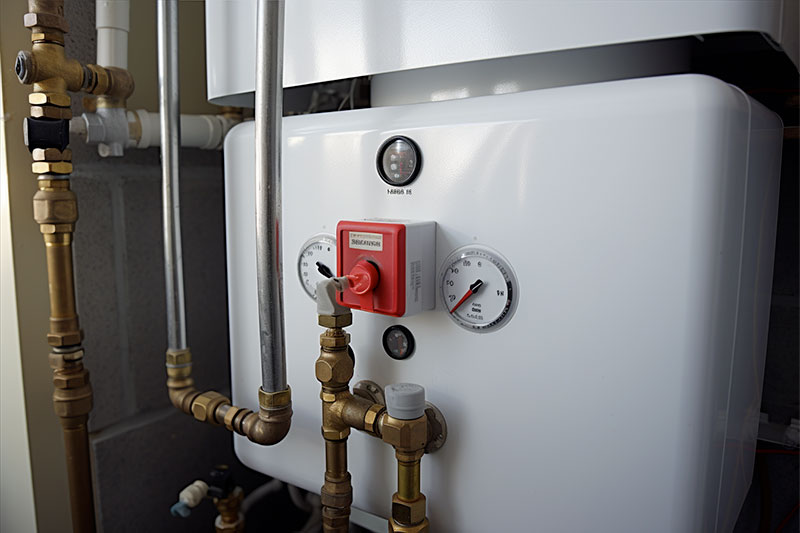
Have you ever been caught off-guard by a cold shower on what should have been a cozy winter morning? It’s moments like these that remind us of our silent household ally: the boiler. Often tucked away in basements or closets, boilers work tirelessly behind the scenes—but when they falter, it’s a chilly wake-up call to their importance. Recognizing the unexpected signs that your boiler is crying out for help can save you from the discomfort and inconvenience of a full breakdown. Let’s explore some telltale indicators that your home’s unsung hero needs urgent attention.
Imagine your boiler as the heartbeat of your home’s heating system; when it skips a beat, the whole house feels the rhythm change. Odd noises—like clanking, whistling, or banging—can be the boiler’s way of sending an SOS, signaling that it’s time for a repair. But it’s not just about what you hear; other subtle clues, such as strange smells or a mysterious hike in your energy bills, could also point to underlying issues. In this article, we’ll dive into the less obvious signs that your boiler might be on the brink, ensuring you can act swiftly to keep your home warm and your showers hot.
Boilers are often the unsung heroes of our homes, quietly ensuring comfort and warmth without much fanfare. However, when they start to show signs of wear and tear, it’s crucial to take notice before you’re left in the cold. Beyond the obvious red flags, there are several unexpected indicators that your boiler may need urgent repair.
The Stealthy Culprits of Boiler Trouble
1. Water, Water Everywhere – But Not from the Taps
Have you noticed mysterious puddles around your boiler? Leaks are sneaky adversaries, often going unnoticed until they cause significant damage. A small drip might not seem alarming, but it can indicate corrosion, faulty valves, or seal problems. Keep an eye out for any unexplained moisture; it could be your boiler’s cry for help.
2. That Strange Smell Could Tell a Tale
Unusual odors emanating from your boiler are more than just a nuisance—they’re a warning. A metallic or burning smell could suggest overheating components or an electrical fault. Mustiness, on the other hand, often points to mold growth from persistent leaks. Trust your nose; if something smells off, it’s time to investigate.
3. Is Your Home Feeling Humid?
Excessive humidity inside your home might be traced back to your boiler. When it’s not operating efficiently, it can fail to regulate moisture levels properly, leading to a damp, clammy atmosphere. This not only affects comfort but can also encourage mold and mildew growth, which are health hazards.
4. A Pilot Light That Won’t Stay Lit
The pilot light is the tiny flame that ignites your boiler’s gas burner. If it frequently goes out or burns with a yellow or orange flame instead of blue, it could signal a ventilation problem or a carbon monoxide leak, which is dangerous and requires immediate attention.
The Hidden Costs of Ignoring Boiler Issues
5. Skyrocketing Energy Bills
Your boiler’s efficiency directly impacts your wallet. If you’ve noticed a spike in your energy costs without a corresponding increase in usage, your boiler might be to blame. Inefficient boilers have to work harder to heat your home, leading to higher energy consumption and, consequently, bills.
6. Uneven Heating: A Subtle Sign of Distress
Does one room feel like the tropics while another resembles the Arctic? Uneven heating can be a symptom of a malfunctioning boiler. It might be down to issues with the circulator pump, air trapped in the system, or even sludge buildup in the radiators.
7. Water Takes Ages to Heat Up
If you find yourself waiting longer for hot water, or the temperature isn’t as high as it used to be, your boiler’s performance is likely diminishing. This can be due to a variety of issues, including thermostat problems, low water pressure, or sediment accumulation in the tank.
Preventative Measures and Quick Fixes
8. Regular Maintenance: An Ounce of Prevention
The best way to avoid boiler troubles is regular maintenance. Annual check-ups by a certified professional can identify and fix small problems before they escalate. Plus, well-maintained boilers are more efficient, saving you money on energy bills in the long run.
9. Know Your Boiler’s Age
Boilers have a lifespan, typically between 10 to 15 years. If yours is nearing the end of its expected service, it may be more cost-effective to replace it rather than pay for frequent repairs. Keep track of its age and start considering your options as it gets older.
10. DIY Checks and Balances
There are some checks you can do yourself, like ensuring the pressure gauge reads within the recommended range and bleeding your radiators to remove trapped air. These simple tasks can improve your boiler’s efficiency and prevent some common issues.
Wrapping Up: When to Call the Professionals
Don’t ignore the subtle signs of a struggling boiler. While some issues can be resolved with simple fixes, others require the expertise of a trained technician. Always prioritize safety; if you suspect a gas leak or other serious problems, evacuate the area and call for emergency services immediately.
Remember, a healthy boiler means a warm and cozy home. By staying vigilant and responsive to the unexpected signs of boiler distress, you can ensure your household stays comfortable all year round. And when in doubt, it’s always better to consult with a professional to get your boiler back in tip-top shape.



